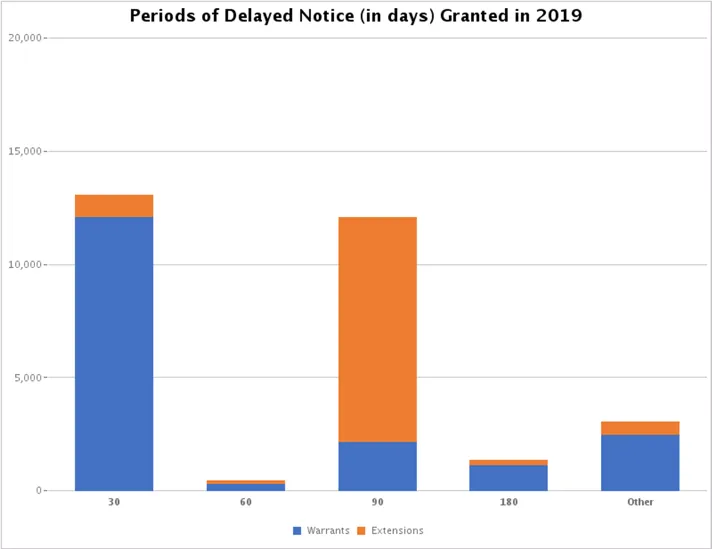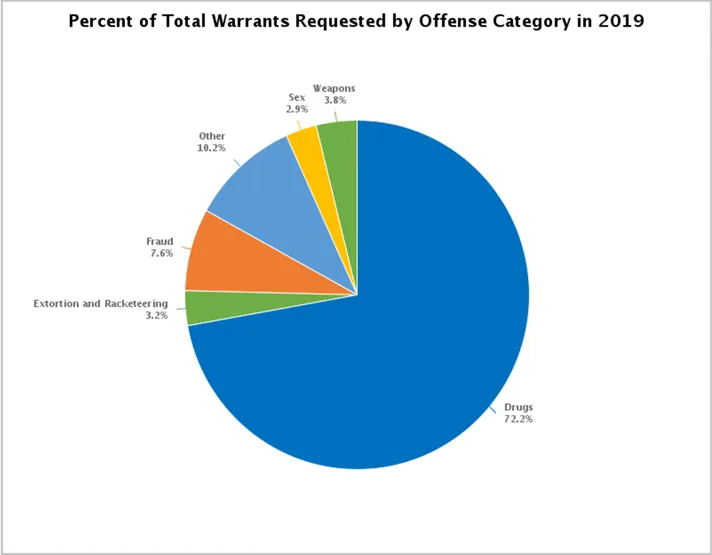This report covers applications for delayed-notice search warrants and extensions that federal courts received between October 1, 2018, and September 30, 2019.
Summary and Analysis
Summary data on requests for delayed-notice search warrants and extensions for fiscal year 2019 appear in Table 1. A total of 18,106 warrant requests were reported. Of these warrant requests, 18,067 were granted, 13 were granted as modified, and 26 were denied. A total of 11,923 requests for extensions were reported; of these requests for extensions, 11,885 were granted, 33 were granted as modified, and 5 were denied.
Judges in 92 federal judicial districts reported actions on requests for delayed-notice search warrants or extensions. Of the requests for warrants and extensions, 1,296 were reported by federal district judges, 28,728 were reported by federal magistrate judges, and 5 were reported by state judges.
Five districts (the Eastern District of Michigan, Southern District of New York, District of Arizona, Southern District of California, and Southern District of Texas) received 32 percent of all reported applications (see data below).
| District | Total Requests | Warrants | Extensions |
| Eastern District of Michigan | 4,235 | 909 | 3,326 |
| Southern District of New York | 1,928 | 1874 | 54 |
| District of Arizona | 1,292 | 614 | 678 |
| Southern District of California | 1,158 | 734 | 424 |
| Southern District of Texas | 1,051 | 645 | 406 |
For warrants, the most frequently reported period of delay was 30 days, which was specified in 12,096 (67 percent) of the applications that were granted. For extensions, the most frequently reported period of delay was 90 days, which was specified in 9,926 (83 percent) of the applications that were granted.


Table 2 presents data on the offenses specified in reported requests for delayed-notice search warrants and extensions reported for 2019. Drug offenses, which continued to be the crimes cited most often in these requests, were specified in 72 percent of warrants. Fraud, the second-most frequently cited offense category, was specified in 8 percent of warrants. Offenses involving weapons, the third-most frequently cited offense category, was specified in 4 percent of warrants.
